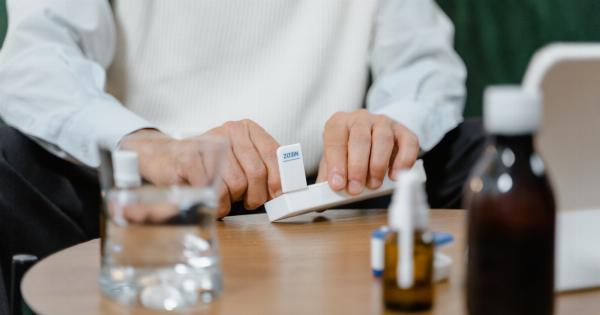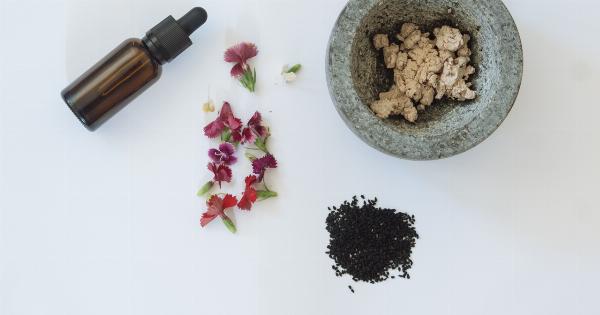Eczema, also known as atopic dermatitis, is a common skin condition that affects millions of people around the world. It is characterized by dry, itchy, and inflamed skin, which can sometimes lead to blisters and oozing.
Eczema can occur on any part of the body and can be triggered by various factors such as allergens, irritants, stress, and certain food items.
Conventional Treatments for Eczema
There are several conventional treatments available for eczema, such as topical corticosteroids, immunomodulators, and antihistamines.
These treatments can provide relief from the symptoms, but they often come with side effects and may not address the root cause of eczema. Additionally, they can be expensive and require long-term usage.
DIY Eczema Treatment
Many individuals dealing with eczema have turned to DIY (do-it-yourself) treatments as a more natural and cost-effective alternative. These DIY treatments focus on reducing inflammation, moisturizing the skin, and strengthening the skin barrier.
While these remedies may not work for everyone, they have been found to provide relief for many eczema sufferers.
1. Moisturize Regularly
Keeping the skin well moisturized is a key aspect of managing eczema. Opt for moisturizers that are fragrance-free, hypoallergenic, and specifically formulated for sensitive skin. Apply moisturizer immediately after bathing to lock in moisture.
2. Oatmeal Baths
Oatmeal has soothing properties that can help alleviate itching and inflammation associated with eczema. Fill a tub with lukewarm water and add a cup of colloidal oatmeal.
Soak in the bath for about 15 minutes, gently pat dry, and apply moisturizer immediately.
3. Apple Cider Vinegar
Apple cider vinegar possesses antimicrobial properties and can help relieve itching and inflammation. Mix one part apple cider vinegar with one part water and apply it to the affected areas using a cotton ball.
Let it sit for a few minutes before rinsing off with water.
4. Coconut Oil
Coconut oil is known for its moisturizing properties and can help soothe eczema-prone skin. Apply a thin layer of coconut oil to the affected areas and gently massage it into the skin. For best results, use virgin or cold-pressed coconut oil.
5. Cold Compress
Applying a cold compress to eczema patches can provide temporary relief from itching and help reduce inflammation. Wrap ice in a clean cloth or towel and apply it to the affected areas for 10-15 minutes.
Avoid direct contact with ice to prevent frostbite.
6. Aloe Vera
Aloe vera has cooling and anti-inflammatory properties that can help soothe eczema flare-ups. Apply pure aloe vera gel to the affected areas and leave it on for 15-20 minutes before rinsing off.
Repeat this process several times a day for maximum benefit.
7. Tea Tree Oil
Tea tree oil possesses antibacterial and anti-inflammatory properties, making it a potential remedy for eczema. Mix a few drops of tea tree oil with a carrier oil (such as coconut oil) and apply it to the affected areas.
It is important to do a patch test before using tea tree oil, as it may cause skin irritation in some individuals.
8. Chamomile
Chamomile has soothing and anti-inflammatory properties that can provide relief from eczema symptoms. Brew a strong cup of chamomile tea, let it cool, and apply it to the affected areas using a cotton ball or cloth.
Alternatively, chamomile essential oil can also be diluted and applied to the skin.
9. Probiotics
Probiotics are beneficial bacteria that can help improve gut health and boost the immune system. Some studies suggest that taking probiotic supplements or consuming probiotic-rich foods may help reduce eczema symptoms.
Consult a healthcare professional before adding probiotics to your routine.
10. Stress Management
Stress can often worsen eczema symptoms. Engage in stress-reducing activities such as yoga, meditation, deep breathing exercises, or pursuing hobbies to help manage eczema better.
Getting enough sleep and maintaining a healthy lifestyle also play crucial roles in managing stress and improving skin health.
Conclusion
While there is no cure for eczema, several DIY treatments can help alleviate its symptoms and improve the overall quality of life for eczema sufferers.
It is important to remember that what works for one person may not work for another, so it may require some trial and error to find the best DIY treatment for your individual needs. Additionally, if symptoms persist or worsen, it is important to consult a healthcare professional for a proper diagnosis and treatment plan.






























